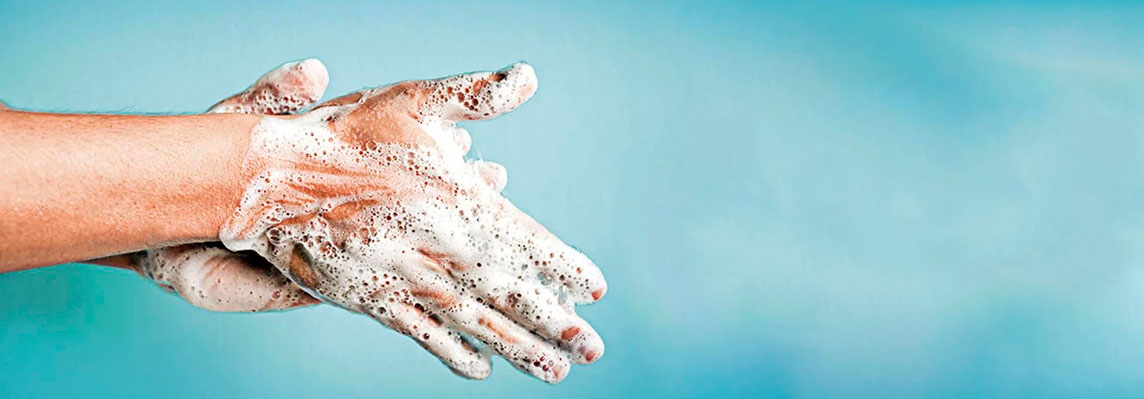Care of the patient before surgery
1Health care
The studies and the corresponding medical assessment must be
completed before the operation is performed. Blood studies, x-rays or
electrocardiogram will be requested as appropriate. An assessment
by a specialist such as an internist or cardiologist may also be
requested.
It is very important to avoid smoking at least one month before the
procedure and one month after.
If there is a trip prior to the procedure, especially a trip from
another country or a long road trip, you should wait at least two to
three days for the surgery.
2Nutrition
Before the surgery it is convenient to have an adequate diet, it can be
useful to go to a nutritionist to have an individualized diet according
to the case.
Before the surgery a fasting is recommended, around eight hours.
Fasting is important to prevent the aspiration of gastric contents
during anesthesia. However, it is important to continue with your
usual medications.
3 Clothing
Try to arrive on the day of surgery in comfortable clothing that can be
easily removed. It is important not to wear jewelry or metal items
such as earrings or piercings. We will provide you with a bag to store
your personal items.
Nails should be unpainted. Cleanliness and bathing are important on
the day of surgery. Avoid wearing makeup and perfume.
You can also pull your hair out, but it is important not to use hair
spray, especially if it is alcohol-free.
4 Documentation and Payment
It's important to carry identification on the day of surgery. Payment
for the surgery can be covered by card or bank transfer. There is an
additional charge for hospital administrative costs.
In case of payment by card, an identification will be requested and
the payment will be verified previously with the bank.
We have had cases of patients denying the charge already made for
the procedure.
The cost of the surgery is in Mexican pesos. There is not a standard
cost since every patient is different, however there is a range of price
paid by the last patients with which you can get an idea of it.
The cost may vary depending on the hospital selected, each patient
is different and their needs during surgery are different.
The initial cost includes the procedure, medical team fees, supplies
and materials. The cost of complications that may arise or extra
nights of hospitalization have an additional cost which may vary in
each case and should be covered by patients.
Care of the patient post surgery
1 Medication
After surgery, medication will be given to prevent infection and
manage pain. A medication to protect the gastric mucosa may also
be indicated.
Your usual medications should not be discontinued. During
subsequent visits, let your doctor know how you feel about your
medications and whether an adjustment can be made.
2 Clothing
The use of compression garments or bras will help to manage swelling after surgery. Initially it may be uncomfortable but as the swelling subsides it may become more tolerable. Ask your plastic surgeon about their use and how long they should be worn.
3 Nutrition
Avoid foods that are irritating or could cause inflammation. A diet
rich in fiber will facilitate intestinal transit.
If you do not have a bowel movement, you can tell your doctor to
suggest some type of medication that can help you with the bowel
movement.
Some constipation may occur after surgery.
4 Physical changes
Swelling and bruising can occur after surgery, each patient is
different so the intensity of these can vary from person to person.
They will take two to three weeks to disappear.
The result of the plastic surgery may take several weeks to be
evident.
The healing period is completed in six to eighteen months.
Try to keep your appointments and follow your doctor's instructions.
The appointments will be once or twice a week during the first
month, this may vary according to the particular evolution of each
patient.
5 Healing
There are healing problems known as keloid or hypertrophic scar.
Which are typical of the healing of each patient.
Don´t miss follow up in this way plastic surgeon can identify it and give management.
Likewise, each patient heals differently, so it is important to ask when you can use any treatment to improve scar process.
Remember that not all patients heal the same way, if it is the case you may require additional treatment to improve
your healing process. Try to walk after your procedure, 15 minutes every two hours.
This will promote mobilization of the legs and avoid clots that can cause deep vein thromboses.
6 Follow-up
If you have any doubts or questions about your procedure, do not hesitate to ask your surgeon. You can go to the emergency room if you feel it is necessary.
7 Risks and Complications
The warning signs are pain in the legs especially behind the calves,
difficulty breathing or fever. Although fever may occur after the first
few hours after the procedure and is considered a metabolic
response to the surgery itself.
There are risks and complications of any procedure, plastic surgery is
no exception. However, if the corresponding evaluations and
pertinent studies are done, the procedure is done in optimal facilities
with trained personnel, the probabilities of having an adverse event
are few and you will know how to handle it. You should know that
your plastic surgeon and team will be with you throughout the
process.


